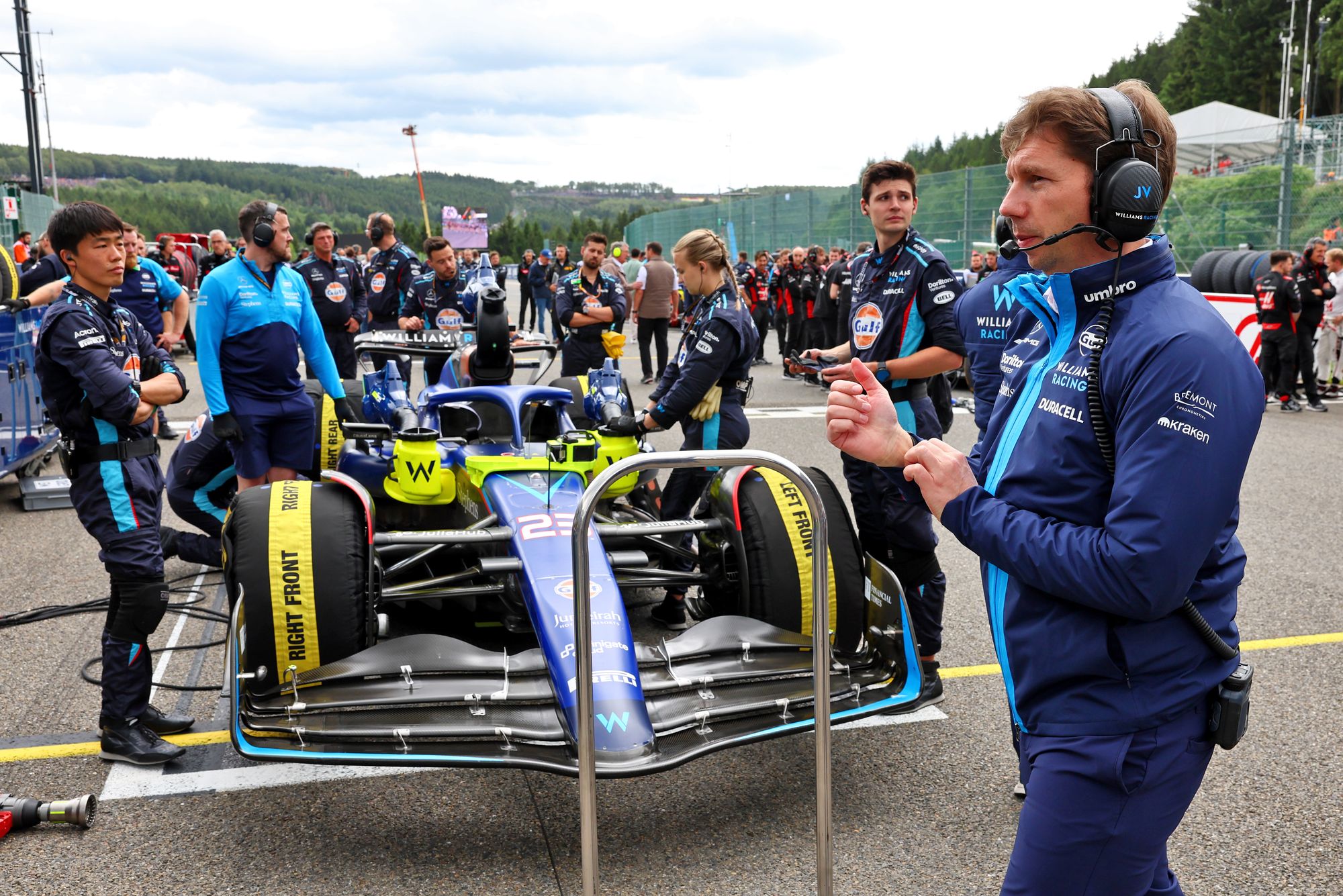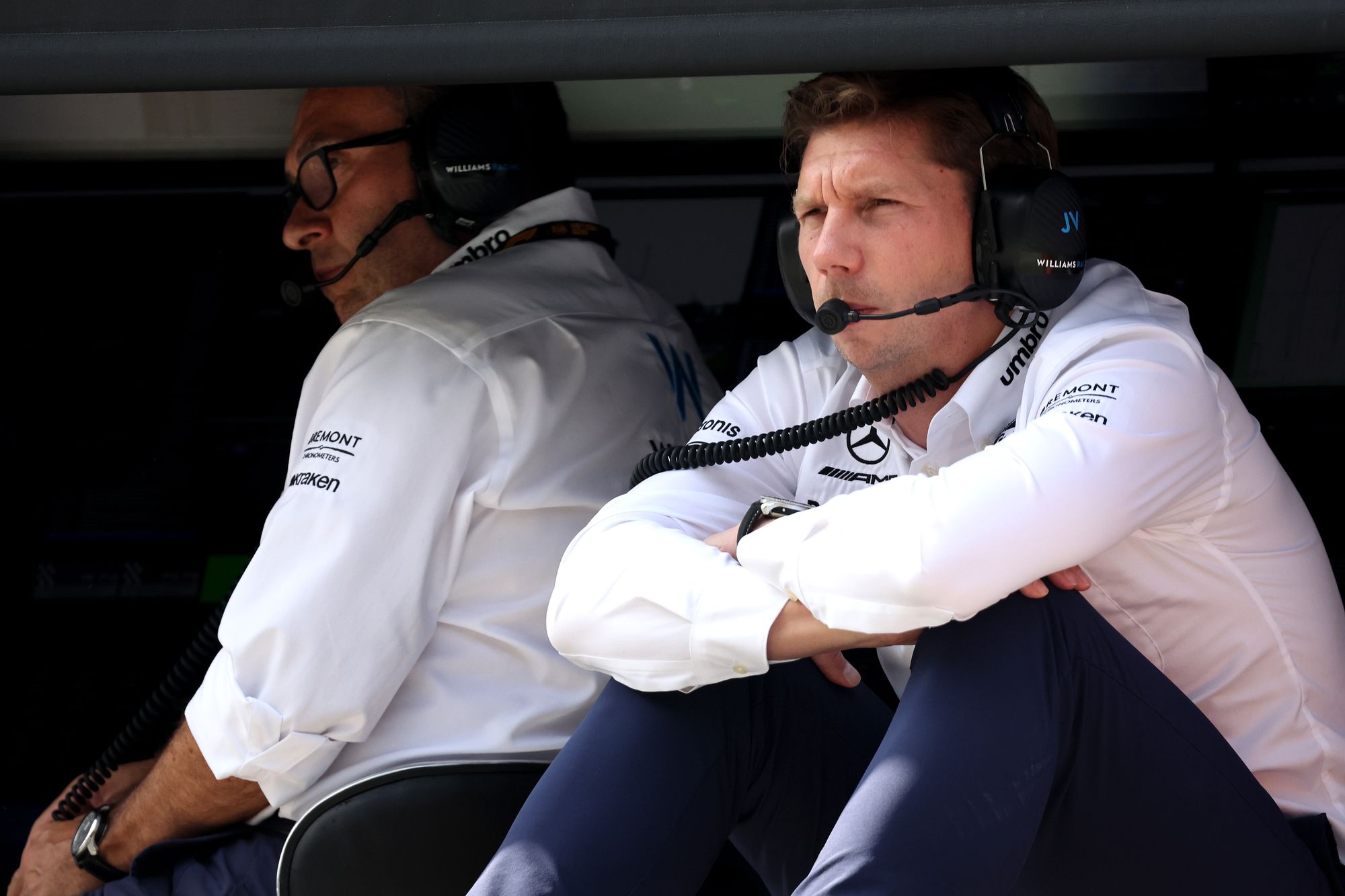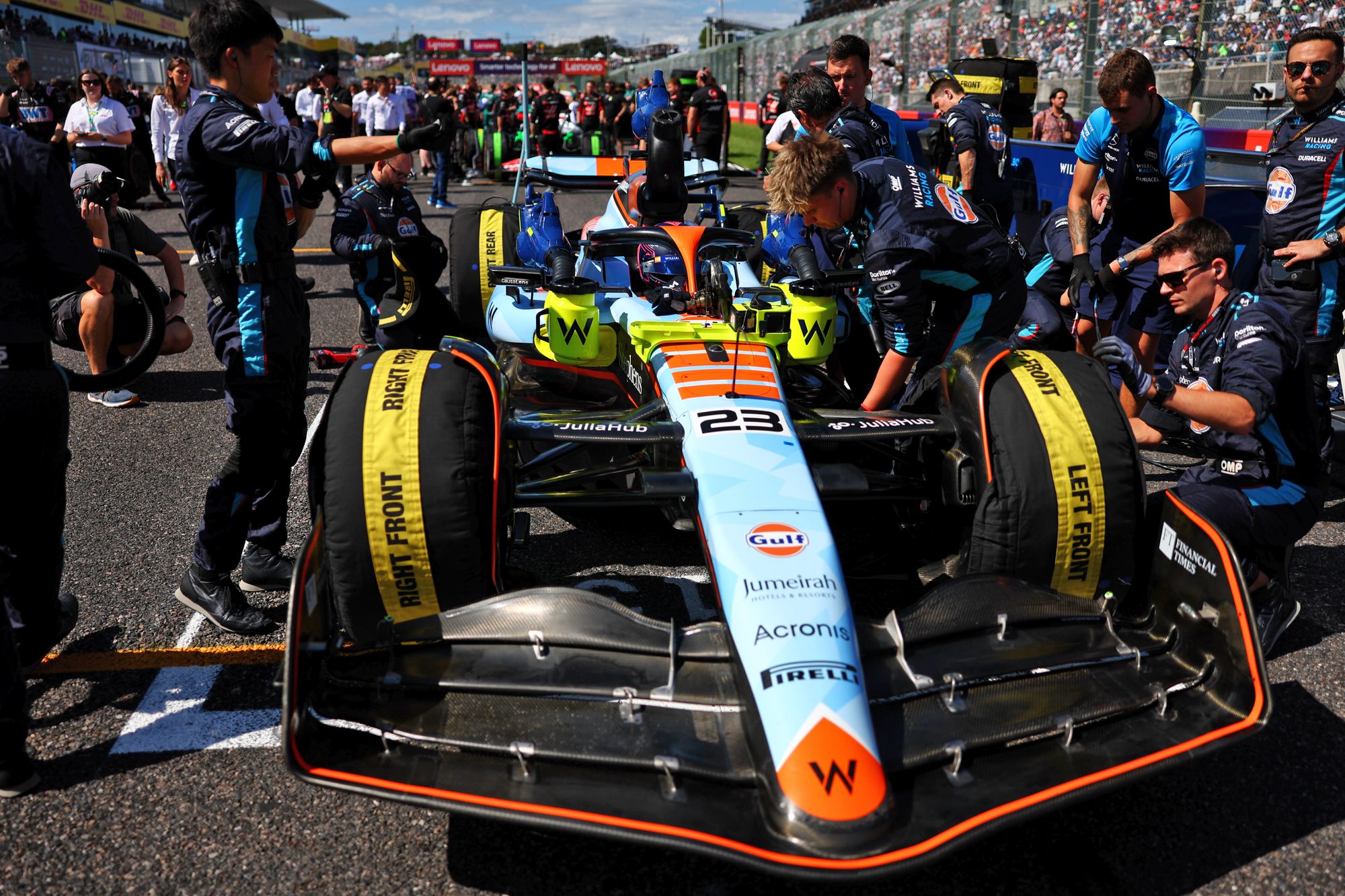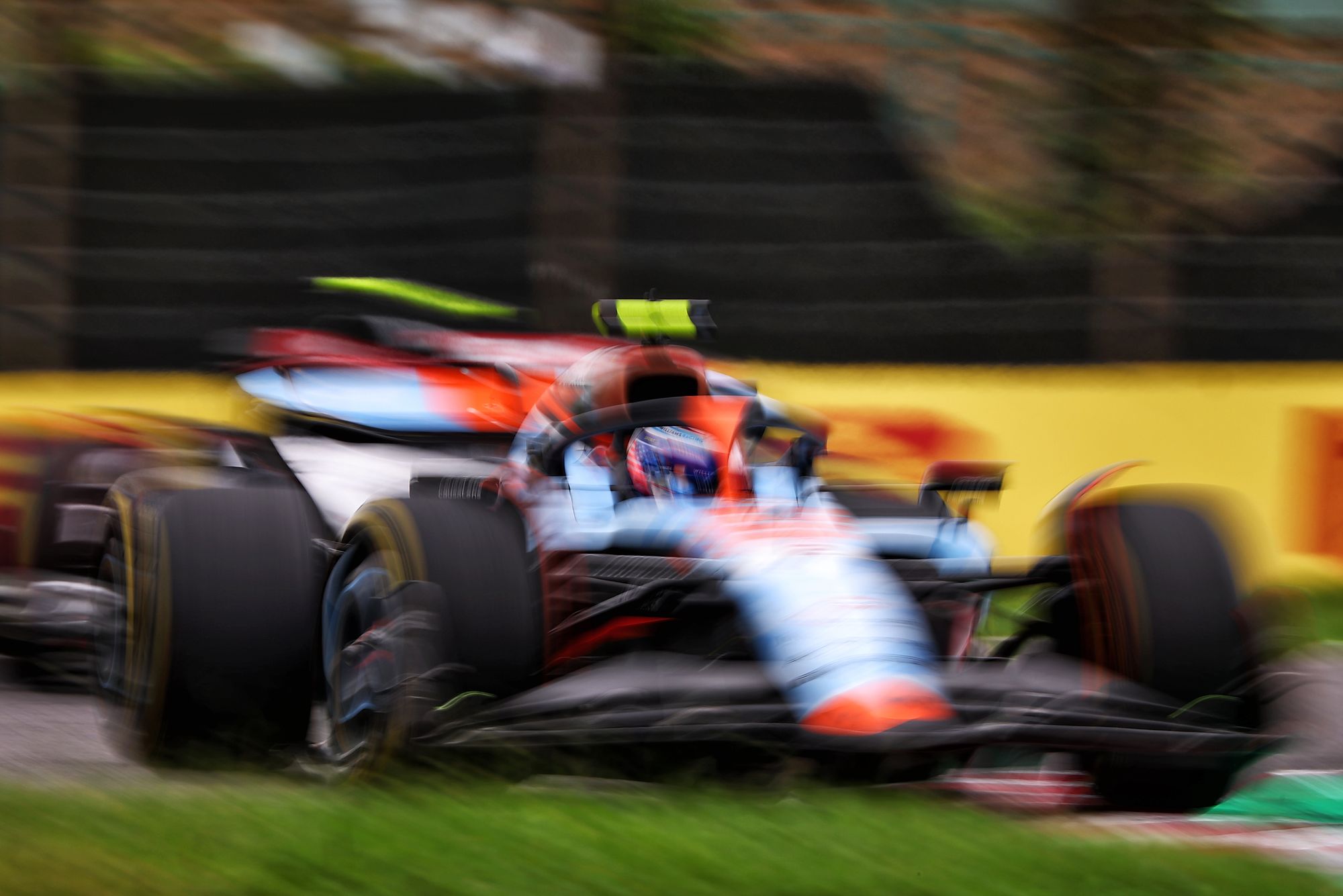Up Next

Formula 1’s existing 10 teams have long united with the commercial rights’ holder in opposition to Andretti-Cadillac becoming F1’s 11th team, but Williams has now outlined quite specific reasons for this objection based on the (lack of) financial stability it says is still facing half the current grid.
There’s been a temptation to view post-pandemic, Netflix-booming, USA-focused F1 as a plentiful goldmine - where exponential growth is creating franchise teams that once were nearly always on the verge of going bust and are now not worth selling to anyone for much less than a billion dollars.

But, as ever in life, it’s not so simple as that. Williams is known to have required, or at the very least been given, a £36million cash injection at the end of 2022 - taking current owner Dorilton’s investment in the team since it took over Williams in the middle of 2020 north of £100m.
Team principal James Vowles confirmed during the Qatar Grand Prix weekend that Williams is still a loss-making team, meaning it is still fundamentally reliant on cash injections from the owners to keep it running and expanding as necessary to keep up with the relentless demands of modern F1.
“If you look at Companies House, you can go and look it up for Williams, we've submitted it now, you'll see that we're lossy, we're very lossy,” Vowles explained. “In fact, from 2021 to 2022, you'll see the losses are in the tens of millions more. Compared to '23, which you won't see, but I'll guarantee you, it's multiples above that.”
This is the first step in crystallising the specific opposition some existing teams will have to Andretti potentially coming into F1 and demanding the teams’ share of the championship’s revenues be split an 11th way.
Williams posted a loss after tax of £17.9million in 2022, against a total revenue of £142.8m. In 2021 that loss was £11.9million against £96.4million in revenue. Clearly Vowles is expecting that gap to widen significantly again in 2023. F1's revenues are increasing, but teams like Williams are still spending - or needing to spend - significantly more than is coming in.
Vowles says Williams is “very strongly against” the addition of an 11th F1 team right now because he feels it will derail his team’s path to becoming properly financially stable after many years of hand-to-mouth existence made worse by chronic underperformance.
Even though the 2020 commercial agreement enshrined fairer revenue distribution for smaller teams, and a cost-cap has been established to limit in-season development spend, and Williams is party to a special pot of monies made available to historically significant teams, F1 is still costing teams like Williams too much.
Furthermore, Vowles insists this position isn’t unique to Williams and that in reality “probably half the grid” are in a similar predicament still - spending more than they can really afford to get themselves into a position where they can eventually properly reap the benefits of F1 as a whole continuing to grow.
This seems odd given the specific measures implemented, but there are still inequities enshrined within the Concorde Agreement - and uncompetitive teams still need to find significant sums to simply compete in F1 and fund essential infrastructure.
“I think the addition of an 11th team is a sensible thing - but only at the point where the 10th team on the grid is financially stable,” Vowles added. “I’m fortunate to have owners [Dorilton] that really believe in what we're doing and invest in what we're doing. But we need to take care as a sport to make sure we look after that.

“Everyone says we're in a good place - we are in some regards. But now those facts down the line, actually this is tens of millions and in fact hundreds of millions, you'll see shortly, being invested to make the sport better.
“It becomes therefore clear why we're very careful about diluting what we've already got. Because it's just more losses on the table. And we've been clear from the beginning - more than happy to bring in new entities, but the pie has to grow as a result of it, not shrink. And so far it's just shrinking.”
By the same token, Vowles remains quite keen on the idea of Cadillac brand owner General Motors coming into F1 - maybe even as a future partner of Williams, though he was quick to clarify that Williams is not in discussions currently in terms of trying to tempt Cadillac/GM to ditch Andretti for Williams.
But F1 has been very clear it wants new manufacturers on board for 2026 - and it would prefer they buy or invest heavily into the existing teams rather than brand new ones. The FIA wants an 11th entry and feels it has found the right candidate; F1’s commercial arm, and Williams too, feels this is an unsustainable position.
“For clarity on that, that's not against Andretti or GM," Vowles clarified. "Quite the opposite. I welcome GM open-armed, and Williams welcomes GM open-armed, and I hope to forge a relationship with them should things not work out.
“They are an incredible entity that I think will make the sport better. So it's not that we're closed-minded to more people coming to the sport. But what we're very careful on is protecting the sport we have right now.

“We obviously have a Mercedes power unit in the back [of the car], nothing agreed yet for 2026. My point is more that an organisation, an OEM like GM, is absolutely welcome in our sport. We would open our arms also, but they are clearly linked to Andretti, that's not a question of that [Williams taking a GM deal] and we're not in talks at the moment.”
The firm opposition to an entry the FIA has green-lit raises the possibility that the FIA has made a mistake in wanting to admit a team that F1 as a whole is not ready to receive - essentially suggesting to Andretti that becoming F1’s 11th team was realistic when in fact it is impossible in the timeframe outlined so far.
Vowles rejected the notion it’s effectively impossible for an 11th team to join, saying "the FIA did everything correctly”, but he’s clearly nervous of any further significant commercial disruption requiring him to go cap in hand again to Williams’ owners.
“What [the FIA are] looking at is: 'does that individual have sufficient money, sufficient facilities behind them, in order to do a good enough job?' And that was all certified and signed off, and that all makes sense," Vowles said.
“What I'm now talking about as an individual with 900 people's responsibility on my shoulders, is what needs to be there, which we're yet to understand or see, which is how does the pie grow from this so that I'm not having to ask my board, my owners fundamentally, for even more money again?
“Because right now that's the direction of travel and that's our concern. What we're looking for is for that pie to grow significantly enough that we're not losing money or losing elements but gaining as a result of it. And there is opportunity to do that.
“We are getting ourselves towards financial stability for the first time in forever, really. Let's get to that point and let's see where we are.”

Following the FIA press conference in which Vowles made his initial case, he was pushed further on his argument by ex-F1 driver Karun Chandhok for Sky.
After Vowles argued that as well as reducing the prize money share, an 11th team created more pressure on the sponsor base as there would be more teams fighting over the same number of potential F1 sponsors, Chandhok asked why he was assuming Andretti and GM "wouldn't make the pot grow", to which Vowles replied: "No what we’re asking for is ‘show us the pot grow’, it’s the other way around".
When Chandhok said that could only happen if Andretti was allowed in, Vowles responded: "Not true. You can if you’re bringing in new elements to things, you can certainly show that you’re going to grow within America.
"We’ve got an American team Haas, how does a second team help us? We’ve got three American races, how does an American team help that?
"There’s ways of doing it but as of yet that’s what we’re still waiting for."




